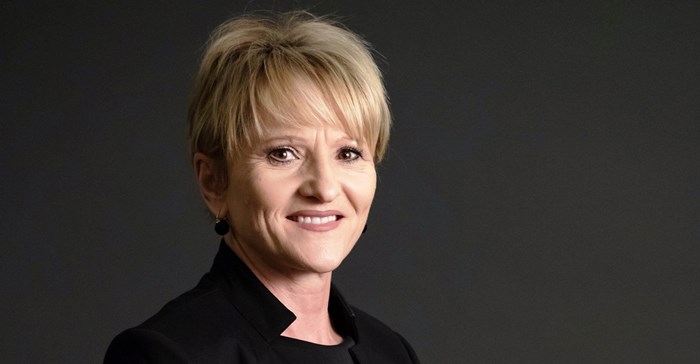
Jeanette Marais, CEO of Momentum Investments and deputy CEO of Momentum Metropolitan.
The process of digitisation is removing the very cornerstone on which the sector is built – that is, the human-to-human interface. This has been especially true of the way the industry has pivoted as a result of the onset of the pandemic. We relied heavily on artificial intelligence, big data, cloud-computing and connectivity to guide us through one of the most turbulent periods in human history. We found that the incredible technological advancements of the 4th industrial revolution could give us a competitive advantage, enhance our customers’ experience and give the end-client more control in this new low-touch environment. It was a fast track to the future.
Our shift into an increasingly digitised way of working has been accelerating over the last few decades. It has however been linked to an undercurrent of anxiety. We asked ourselves whether robo-advice, which entered the fold around 10 years ago, would put traditional wealth advisers out of business. The short answer, is no, and it rests on one crucial factor – financial advice and investing is personal.
Take it personally
A survey conducted by Price Waterhouse Coopers found that two-thirds of clients feel that financial services companies have lost the human touch in their client interactions. In an industry with a foundation of building trust and providing financial security, it was found that there is serious work to be done to not allow client experience to fall behind.
According to Forbes magazine, tthe connection between the advisor and client is changing and becoming more personal even before the pandemic, but since then, it has really intensified with a need to focus on adding value, offering real solutions and meeting the needs of today’s client.
We cannot reduce individuals to numbers and algorithms, and we cannot detract from the value of the human element, so how do we move forward in a digitised finance world? We adapt, we evolve, and we acknowledge that technology has the potential to disrupt or elevate our practice as financial professionals.
The human-robot hybrid solution
Investing is personal – because financial advice and financial aspirations are personal. For this reason, we place emphasis on authentic-client-centred interactions, and only humans can enable those interactions. Technology however, is our trusted sidekick and we need to leverage it as we move towards the new norm within the developing digital economy. Robo-advisor technology has opened the market to anyone wanting to invest, providing the client with an automated investment process that is cheaper, more efficient and a more flexible alternative to traditional services. This is also the way clients do their research before discussing financial matters with their advisers.
Digital technology and the human element can co-exist. Some clients prefer 100% digital and self-service, others would enjoy a hybrid advice journey while others want 100% advisor, human interaction. As financial advice companies, we need to cater to diversity and difference and use technology to save time, use our resources more efficiently and optimise our customer service experience.
The advice environment is changing, and we would like to see it change for the better. In a study conducted by Momentum Investments in partnership with Oxford Risk in the UK, it was found that human error can be rectified and indeed, avoided through the use of software. Advisors are influenced by their human experiences, and this is where digital can lend a hand in providing an objective perspective. Conversely, the Oxford Risk report found that while the robo-advisors offer a more accurate evaluation of the client’s position and investment recommendations, they have difficulty in reading, understanding and interpreting human behaviour and personality. Both human expertise and technological innovation have shortcomings. Together, we make a formidable team.
Towards a better future
Robo-advice should complement your practice in the same way that a decision review system or a virtual assisted referee is used in professional cricket, tennis or football matches. While it enhances consistency and accuracy, at the end of the day the final decision can still be made by the umpire, using human judgement.
We have come far, but we still have far to go. Our clients now expect that we embrace innovation and incorporate technologically-powered solutions into our service offerings so that we can deliver ease of use, accessibility, quality, personalisation and people-first experiences. Our new world is one of hybrids. May we embrace the change.


















































